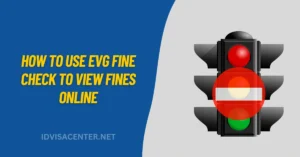How to Get a Salary Certificate in the UAE (and What It Should Include)
Need a loan, switching jobs, or applying for a visa in the UAE? One document you’ll likely be asked for is a salary certificate. It’s official proof of your income and employment, and it plays a key role in everything from visa applications to tenancy contracts and bank approvals.

While a salary certificate is a straightforward document, many people make mistakes when requesting or submitting it leading to delays, rejections, or unnecessary back-and-forth. From missing key details or using the wrong format for a specific purpose, every small error can cause major setbacks.
This article explains how to get a salary certificate in the UAE, what it should include, when it’s needed, and why getting the format right matters. Let’s get into it.
What is a Salary Certificate in the UAE?
A salary certificate is an official document issued by your employer that confirms your employment status, job title, and monthly or annual salary. It typically serves as proof of income and is often required by banks, government agencies, landlords, embassies, and other institutions in the UAE.
Think of it as your financial and professional ID, used when your pay slip alone isn’t enough. A salary certificate isn’t mandatory, but institutions often request it when you have to prove your source of income.
For example, if you’re applying for a work permit in the UAE, your salary certificate may be required by immigration authorities to confirm whether you meet minimum salary requirements for certain job roles or residency statuses.
Salary Certificate Format in the UAE
While the format may vary slightly depending on your employer, a standard salary certificate in the UAE usually includes the following details:
- Full Name of the Employee
- Employee ID (if applicable)
- Job Title or Designation
- Joining Date
- Monthly or Annual Salary (broken down into basic salary, housing allowance, transport, etc.)
- Employer’s Name and Company Letterhead
- Date of Issuance
- Signature of the Authorized Person
- Official Company Stamp

Salary certificate format UAE
Unlike a payslip, which is a monthly record of salary disbursal, a salary certificate is a formal declaration by the employer, often used for third-party verification.
Who can request a Salary Certificate in the UAE?
Any employed individual in the UAE, regardless of nationality or profession, is entitled to request a salary certificate from their employer. Eligible individuals include;
- Full-time employees with active employment contracts.
- Government and semi-government employees.
- Expatriates sponsored by a company or organization.
- Workers changing jobs who need proof of employment history.
- Individuals applying for family visas, bank loans, or tenancy agreements.
Important Note:
- Individuals on a freelance visa or self-employed may not receive salary certificates in the traditional sense. They often provide income certificates, invoices, or financial statements instead.
- Employers are generally obligated to provide this document upon request, especially if stipulated in your employment contract or required by law.
When do you Need a Salary Certificate in the UAE?
A salary certificate is very important in the UAE as many institutions need it as proof of employment or an employee’s financial capabilities.
Here are some common situations where you may need a salary certificate:
Visa Applications
When applying for a visa or work permit in the UAE, the immigration authorities require proof that you (the sponsor) earns a minimum salary. A salary certificate validates your income, job stability, and employer, and helps confirm your eligibility. For example, to sponsor a family member, expats usually need to meet a minimum monthly income threshold, often around AED 4,000 to AED 6,000, depending on the Emirate. The salary certificate must be recent (typically issued within the last 30 days) and printed on official company letterhead with a valid stamp.
Loan & Credit Card Applications
Banks in the UAE are strict when it comes to issuing credit. Whether you’re applying for a personal loan, car loan, or credit card, they use the salary certificate to verify your income and assess your creditworthiness. It must reflect your gross salary and any allowances (like housing or transportation). Some banks also require the certificate to be addressed directly to them, so it’s wise to mention this to your HR when making the request.
Employment Changes
If you’re changing jobs or renewing your work permit in the UAE, the Ministry of Human Resources and Emiratisation (MOHRE) or your free zone authority might require a salary certificate to confirm your current employment and salary level.
Housing & Rental Agreements
In many parts of the UAE, especially in cities like Dubai and Abu Dhabi, landlords and property management companies often request a salary certificate before signing a lease. It serves as proof that you have a stable income and can reliably pay rent over the contract period.
Real estate agents might also require it when registering tenancy contracts with Ejari (in Dubai) or Tawtheeq (in Abu Dhabi). In some cases, if the document is not in Arabic, a certified translation may be required for legal registration purposes.
International Travel
If you’re applying for a visa to countries like the UK, Schengen states, Canada, or Australia, embassies often ask for a salary certificate as part of your financial proof. It demonstrates that you’re employed, earning a stable income, and are financially capable of funding your travel and returning home. If the destination country doesn’t accept Arabic or English, the certificate must be accompanied by a certified translation.
Step-by-Step: How to get a Salary Certificate in the UAE
Requesting a salary certificate is a simple process, but following the right steps ensures you receive a properly formatted document that meets the requirements of the specific institution where you intend to use it.
Here’s a step-by-step guide to get a salary certificate in the UAE.
1. Identify the Purpose of the Certificate
Before submitting your request, clarify why you need the certificate. Employers often tailor the content slightly depending on the purpose, whether it’s for a visa application, bank loan, rental agreement, or a work permit in the UAE. If it needs to be addressed to a specific institution (like a bank or embassy), mention that upfront.
2. Contact Your HR or Admin Department
Most companies in the UAE issue salary certificates through their HR department. You can typically request it via internal HR portals, by email, or through a formal written request (in some companies). Include key details like your full name and employee ID, department or job title, purpose of the certificate, and any specific formatting or addressee requirements.
3. Wait for Processing
The processing time can vary depending on your company’s workflow. In most cases, HR will issue the document within 1–3 working days. Urgent requests may be accommodated, especially if travel or legal deadlines are involved.
4. Review the Certificate Carefully
Before using it, check that the certificate includes:
- Your correct name, job title, and joining date
- Accurate breakdown of your salary and allowances
- Company letterhead, authorized signature, and official stamp
- The correct addressee (if applicable)
5. Translate and Certify (If Needed)
If you’re submitting the certificate to a non-English or non-Arabic-speaking country, you’ll likely need a certified translation. Ensure it comes with a certification of translation accuracy, especially if it’s for legal or immigration use.
Salary Certificate vs Employment Contract vs NOC (What’s the Real Difference?)
In the UAE, employment-related documents often overlap in purpose, but each one serves a specific function. Many people confuse a salary certificate, an employment contract, and a No Objection Certificate (NOC) but using the wrong one can delay applications, especially for visas, loans, or work permits.
Here’s how they differ:
1. Salary Certificate
A salary certificate is an official document issued by your employer confirming:
- Your job title and designation
- Your monthly or annual salary (including allowances)
- Your joining date
- That you’re currently employed
Use it when: You’re applying for a visa, loan, credit card, or need proof of income for renting an apartment or renewing a work permit in the UAE.
Key features:
- Issued on company letterhead
- Signed and stamped by an authorized person
- Usually addressed to a specific organization (e.g., a bank or embassy)
2. Employment Contract
An employment contract is a legal agreement between you and your employer that outlines the terms and conditions of your job. It includes:
- Your job role and responsibilities
- Working hours
- Salary and benefits
- Duration (limited or unlimited)
- Termination clauses
Use it when: You’re applying for a new visa or residency permit, or resolving labor disputes.
Key features:
- Registered with the Ministry of Human Resources and Emiratisation (MOHRE) or your free zone authority
- Legally binding
- Not typically issued on request (you receive it when you join the company)
3. No Objection Certificate (NOC)
A NOC is a letter issued by your employer stating that they have no objection to you undertaking a specific activity, such as:
- Changing jobs
- Sponsoring a dependent
- Taking on a freelance project
- Buying property
- Applying for a visa (in some cases)
Use it when: You need written employer permission for something outside your regular job duties.
Key features:
- Brief and to the point
- Usually includes your name, passport number, and the purpose
- Must be stamped and signed to be valid
FAQs
Can I translate the certificate myself?
No. If your salary certificate needs to be submitted to a government body, bank, embassy, or any official institution, especially outside the UAE, it must be translated by a certified translator or approved translation agency.
How long is a salary certificate valid for?
A salary certificate is generally considered valid for the period of your employment.
Do I need a new one for each bank/visa application?
Yes. In most cases, especially when the certificate needs to be addressed to a specific organization (like a particular bank, embassy, or landlord), you’ll need to request a new, customized salary certificate. Reusing a general one may lead to rejection, particularly if it’s not properly formatted or addressed.
What if my employer won’t give me one?
While most reputable employers in the UAE are willing to issue salary certificates upon request, some may delay or deny the request due to internal policies or disputes. If this happens, you can escalate the issue to your HR department, file a formal written request, or contact the Ministry of Human Resources and Emiratisation (MOHRE) for guidance, especially if the denial affects your legal or financial standing.
Is a salary certificate the same as a payslip or employment contract?
No. A salary certificate is a formal document issued upon request, summarizing your employment details and salary. A payslip shows monthly payment breakdowns, and an employment contract is a legal agreement outlining job duties, salary, and terms. Each serves a different purpose and isn’t interchangeable in official processes.
Can I use the same certificate for both visa and loan applications?
It depends. Some employers issue a general salary certificate, but banks and visa offices often require one addressed to them specifically. For instance, a bank may reject a certificate addressed “To Whom It May Concern” and request one mentioning the bank’s name. It’s best to specify the purpose when requesting the certificate to avoid delays.
Conclusion
A salary certificate is a key document that supports your identity, income, and employment status in the UAE. Whether you’re applying for a visa, loan, or work permit, submitting the correct version in the right format can make all the difference.
Before you submit yours, double-check the requirements and, if needed, get a certified translation from a trusted provider to ensure your application goes through smoothly.






